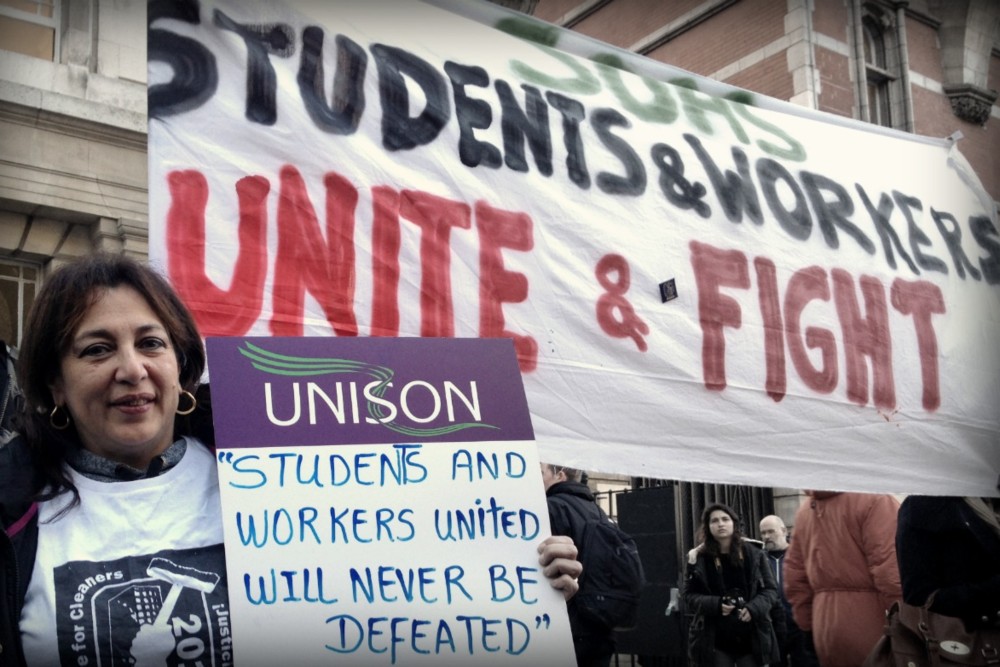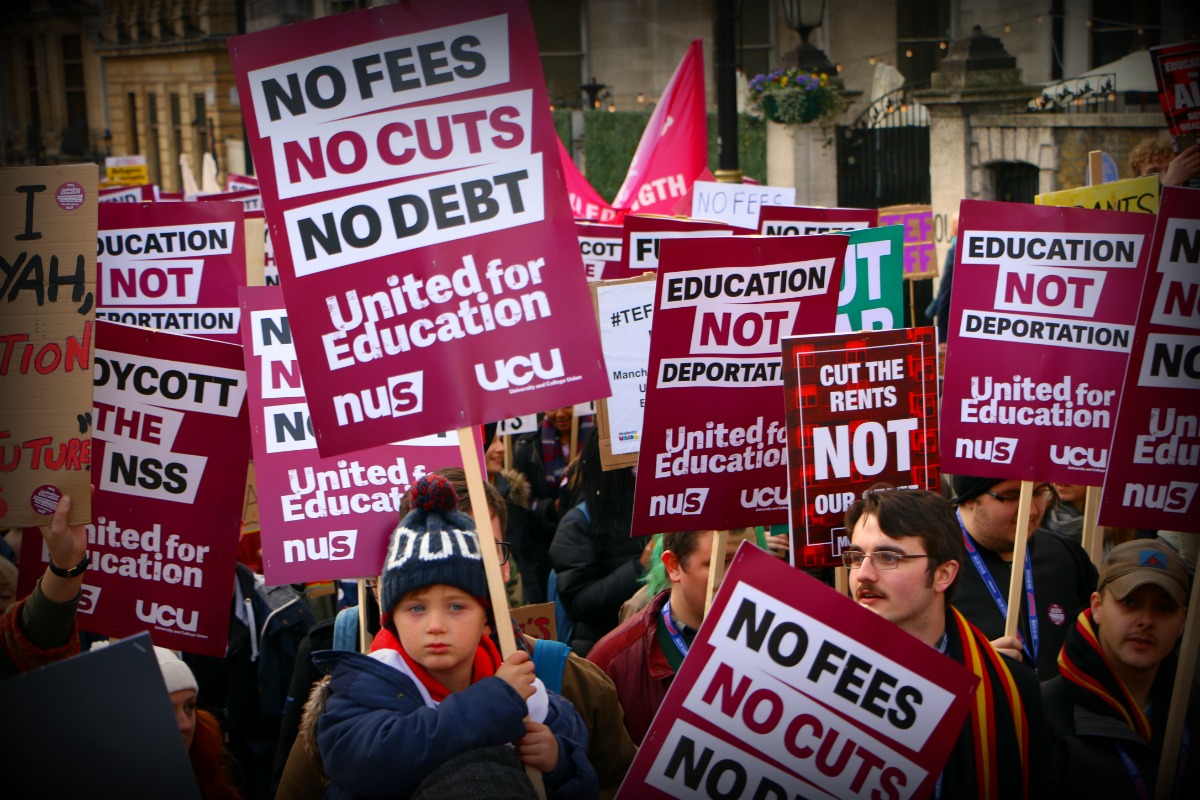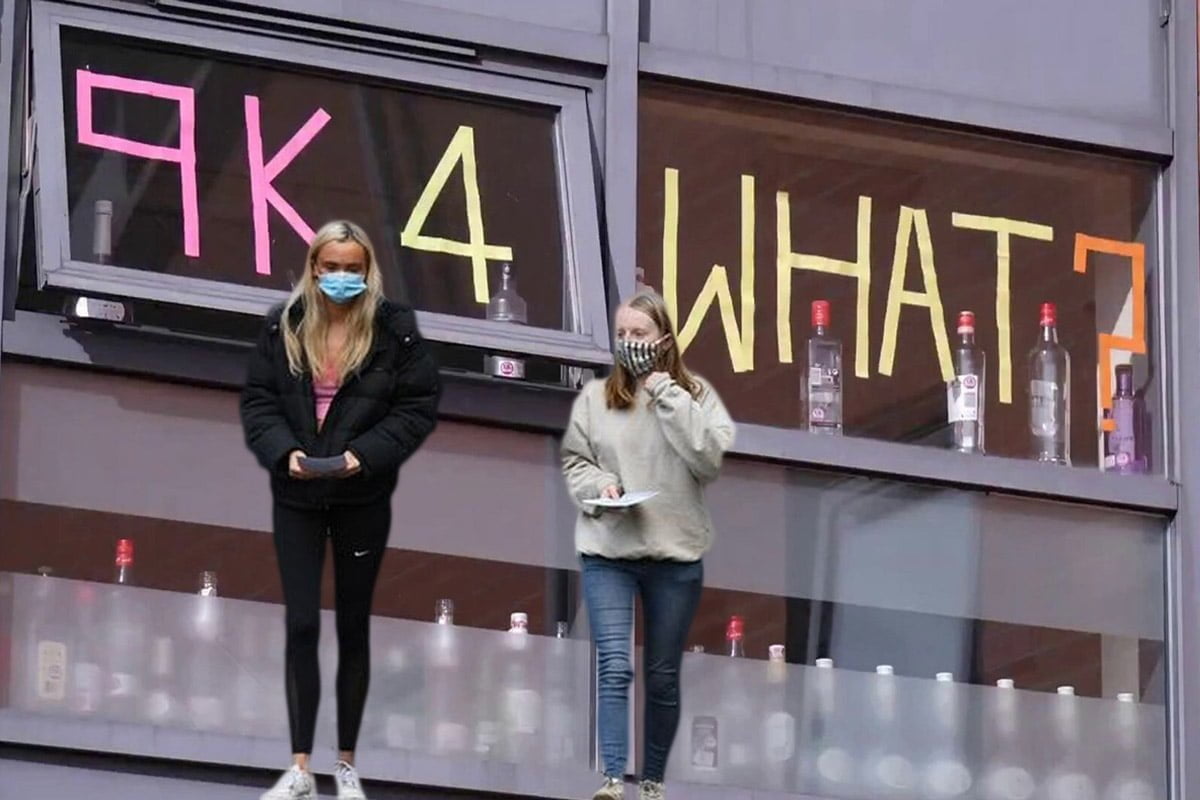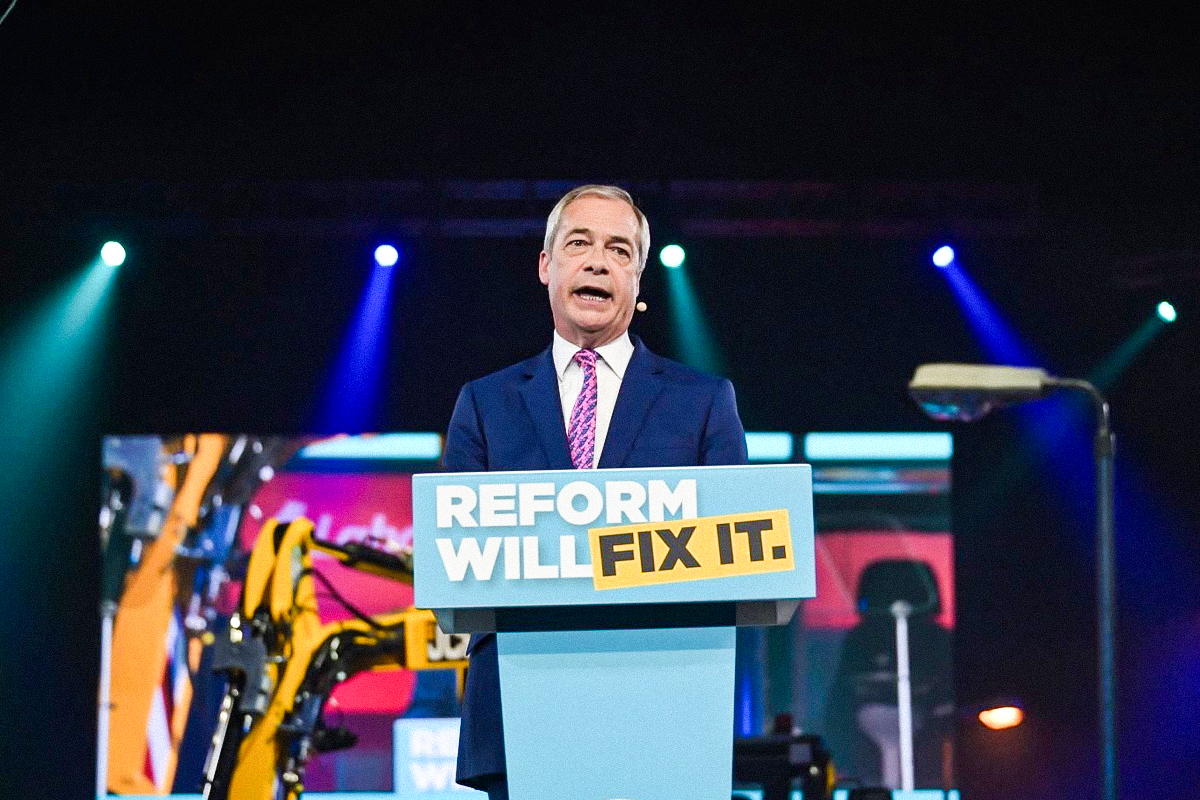Universities are incarcerating students following an explosion of COVID cases in campus halls. This chaos has been created by the marketisation of education. Students and workers must fight for free education and democratic control.
Students across the UK have been flooding into universities in recent weeks for the start of the new academic year. Armed with face masks and empty promises of safety from university administrators, these young people have embarked on an unusual journey into higher education (HE) in the age of COVID.
Prior to students’ arrival, lecturers and staff in the University and College Union (UCU) had raised concerns about the lack of clear guidance and leadership from university management.
Faculty members were barely keeping their heads above water with the switch to remote learning; and staff were unsure how the university was going to bring students back to campus, whilst ensuring the safety of both students and HE workers.
But the bosses pressed ahead anyways, with only the vaguest of plans in place. Above all, this recklessness is the result of their drive to collect tuition fees and accommodation rents.
Unsurprisingly, these paper-thin plans fell apart the minute students settled into their halls of residence.
Clearly management could have seen this coming. Did they sincerely believe that freshers – crowded into cramped accommodation blocks – could be expected to adhere to strict social distancing guidance? And yet they ploughed on regardless, driven by their need to turn a profit.
im really paying £15k a year to be locked in a room. my common room in my accommodation isn’t open so i cant talk to anyone, the gym isn’t open so i cant exercise, yet im paying full rent price and full tuition to watch online videos #studentlockdown
— melanie (@meIanierose) September 28, 2020
Putting out fires
Students in Scotland were the first to experience this chaotic situation, with the new term beginning earlier than the rest of Britain.
But others – most notably around 1,700 students at Manchester Metropolitan University (MMU) – have quickly followed: incarcerated in their halls due to outbreaks of the virus. And thousands more are sure to join them in the coming weeks, as more and more students arrive on campus.
On 23 September, Scotland recorded its highest number of COVID-19 cases following an explosion of positive test results at the University of Glasgow. Reports suggest that the increase of 172 cases emerged primarily in student accommodation.
Subsequently, over 600 of students have been forced into self-isolation, as administrators scramble to conjure up an effective response – one that will somehow tame the fires of student outrage and satisfy the university’s profit motive.
But the messaging from the university has been inconsistent. On the one hand, the administration took to Twitter to announce its updated plan of action to support students.
This included: a four-week rent rebate for students living in halls, regardless of isolation status; a £50 credit to students’ accounts, to be used for food deliveries; a system of welfare checks for isolating students; and an invitation to local mobile food outlets to provide support for isolating students.
However, this gesture buckled under the reality of life in student accommodation. Reports and complaints from students and parents have exposed the university’s ‘intervention’ for what it truly is – a floundering attempt to save face.
Divorced from reality
For starters, the insulting meal credit allowance does not remotely account for real meal prices and delivery fees. Furthermore, students have reported that the university’s ‘meal delivery plan’ for isolating students features famously nutritious and hearty dishes such as peanut butter sandwiches. Students have also received little-to-no guidance on how to arrange grocery deliveries to their flats.
University management could be communicating directly with students, asking them what is needed to address the immediate problems that they face. But instead, they have just presented a PR stunt on social media.
In any case, the university’s derisory attempts at appeasement continue to be overshadowed by their overall strategy — blame the students.
Completely shambolic! Students aren’t at fault. Remember this is happening because the government and universities told students to return to campus when they could have just stayed home and studied online ?#studentlockdown pic.twitter.com/hRVfVdpfLt
— Muna Yassin (@MunaYassin10) September 28, 2020
Following the first announcement of a spike in cases, the university urged students to avoid going to pubs and issued a ban on multi-household social gatherings. Unfortunately, the university’s pathos did not fully consider the material realities of student accommodation, such as shared kitchens and toilets. Their instructions therefore failed to tackle the real public health issues at play.
Instead of addressing the problems of shared housing in a pandemic, the university – like many governments around the world – has decided to double down on its punitive approach to containment. Scandalously, students have been issued with disciplinary threats from management for any breaches of the health guidelines.
Sold a lie
At Manchester Metropolitan University, the situation is no better. Facing two weeks of isolation, students have been presented with a meagre carrot and a large stick. The university’s offer of compensation is pathetic: only a two-week rent rebate and a food voucher; and no reduction in sky-high tuition fees, for what has effectively become an online-learning experience.
Furthermore, students in the affected accommodation blocks have been ordered to take down agitational signs which compared their situation to a prison, and which denounced Boris Johnson and this shambolic Tory government.
“I just feel completely neglected,” complained one Anna Billaney, a student at MMU, to BBC reporters. “There’s been little in the way of pastoral care.”
“We’re all trying to get deliveries, but that’s the same for 2,000 people,” stated Aslan Warburton, another MMU student, “so a supermarket trying to deliver that much food to that many people is not going to be an easy thing.”
In effect, students have been conned and tricked by university managers – sold a lie so that the bosses can continue to make a profit from fees and rents.
Young people were lulled to campuses on the promise of the full ‘student experience’, face-to-face teaching, and a safe learning environment. Instead, students are forking out £9k in fees, and hundreds per month extra in rent, only to be locked away; receiving an exclusively online course that could have been done from the safety of their family homes.
Please don’t blame the #Students, they were actively encouraged to start #university this September. Actively encouraged to move into #halls & repeatedly told it would be safe. They have been completely screwed over & have a lifetime of debt for the privilege. #studentlockdown
— Erin Shanagher (@ErinShanagher) September 26, 2020
“This could be going on for four weeks, six weeks, we just don’t know, that’s the issue,” asserted Joe Ward, an isolating MMU student. “If I was made aware that this is how things would be and things would only be online, then I definitely would have reconsidered going to university this year.”
Unite and fight
 As universities across the UK continue to shift the blame and avoid accountability for their reckless actions, we – as students – must be firm in our response.
As universities across the UK continue to shift the blame and avoid accountability for their reckless actions, we – as students – must be firm in our response.
We must demand the compensation of all rent payments and tuition fees for all students, regardless of isolation status. Education should be free; and students should receive full maintenance grants, not be forced to pay eye-watering rents to university bosses and parasitic private landlords.
Moreover, we demand that universities work with students to institute an effective isolation and self-quarantine plan, including free meal deliveries, free and comprehensive mental health services, and a comprehensive plan for academic and social support.
To communicate with university administrators and implement proper safety measures, student unions and activists should help to establish democratic student committees in halls of residence.
These should elect accountable and recallable representatives, and join together to form an organised network of students across the university. Where management refuses to offer rebates, then such networks should be used to coordinate rent strikes.
Importantly, with this kind of organisation in place, students would also be in a strong position to unite with UCU members and other unionised workers to fight against the marketisation that has spread throughout higher education. This would strengthen the position of both students and staff, in the joint struggle against fees, rents, cuts, and casualisation.
Students were told there would be blended teaching, so we should come back to campus. So we did. As soon as the universities and landlords got our money we were told that we can’t go home for Christmas because it would cause a rise in cases.#studentlockdown
— Georgia (@WiFiOnTheBrain) September 28, 2020
Education before profits
 This latest fiasco has only underlined why education should be free; why we need full maintenance grants for all; and why universities should be institutions of learning, not profit-hungry monsters that survive on the brutal exploitation of staff and students.
This latest fiasco has only underlined why education should be free; why we need full maintenance grants for all; and why universities should be institutions of learning, not profit-hungry monsters that survive on the brutal exploitation of staff and students.
If the Tory government says this is unrealistic and unaffordable, then we must fight to kick out the Tories – and kick out capitalism! The money exists to fully-fund our universities. We say: make the bosses pay for this crisis!
We must connect the current situation to the ongoing struggle for workers rights’ and the fight for socialism, in Britain and internationally. Students and workers: unite and fight!






